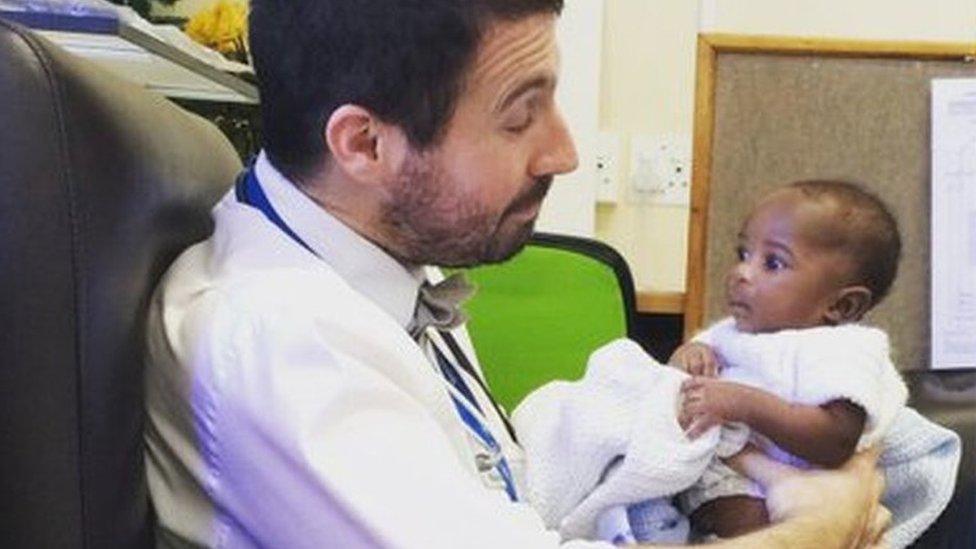Concern at long waits for children's ambulance service
- Published
- comments
Yasmin Morris said her son "kept getting worse" whilst waiting for the ambulance
Critically-ill children in Wales have faced long waits for specialist ambulances, according to official data.
Transfers from district hospitals in mid, south and west Wales to intensive care are done by a team in Bristol.
In 2016, 29% of its transfers took longer than the target of three hours to get to the patient's bedside - compared to a UK average of 15%.
An NHS manager acknowledged geography and availability of beds meant "some retrievals take longer".
The Welsh NHS committee which commissions the service said it was "monitoring" its progress and was reviewing all paediatric intensive care services.
Several parents who have used the WATCh (Wales and West Acute Transport for Children), external service told BBC's Wales Live programme about their children having long waits - one of 24 hours at Royal Glamorgan Hospital in Llantrisant - as it was on calls in south west England at the time.
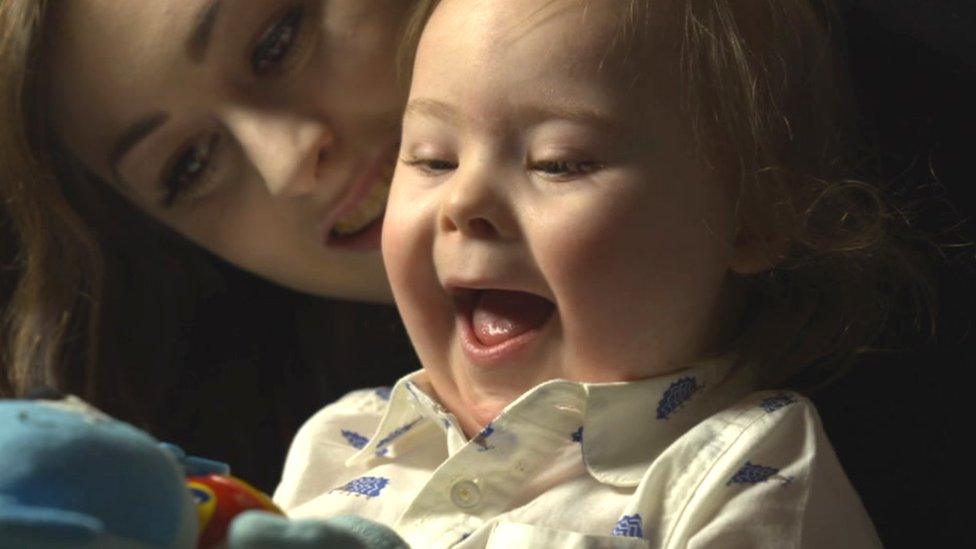
Yasmin Morris with her son Theo
Yasmin Morris' son Theo, who is now aged two, had to use the service when he was three months old to get from Cardiff to Bristol for heart surgery.
"Every time we got a bed in Bristol we had to get confirmation then with the WATCh team for us to go over," she said.
"If they weren't available, we had to wait it out and he just kept getting worse.
"It felt like I was hitting a brick wall a lot of the time."
Darren Lewis's six-year-old daughter Mared, who has an extreme form of epilepsy, has used the WATCh teams several times.
He said many of the waits at his hospital in Llantrisant had been longer than three hours, with one of 24 hours.
He said the ambulance "could be down in Truro, it could be over in Swindon, but then again it could be somewhere else in Wales".
"We're in limbo" waiting for ambulance, said Darren Lewis
Data released to the Wales Live programme under a Freedom of Information request, showed that between October 2016 and July 2017, six children had waits of between eight and 12 hours.
The creation of WATCh was controversial as the team covers a large geographical area with 22 hospitals across south, mid and west Wales, as well as south west England from Cornwall to Wiltshire.
It was formed in 2015, replacing a Cardiff-based team that served south, mid and west Wales.
When it was launched, the Welsh NHS said the WATCh service would ensure all Welsh patients would comply with the Paediatric Intensive Care Society's standard response time of three hours, or four hours for remote areas.
The service which covers north Wales hospitals performed better at 20%, but was still worse than the UK average of 15%.
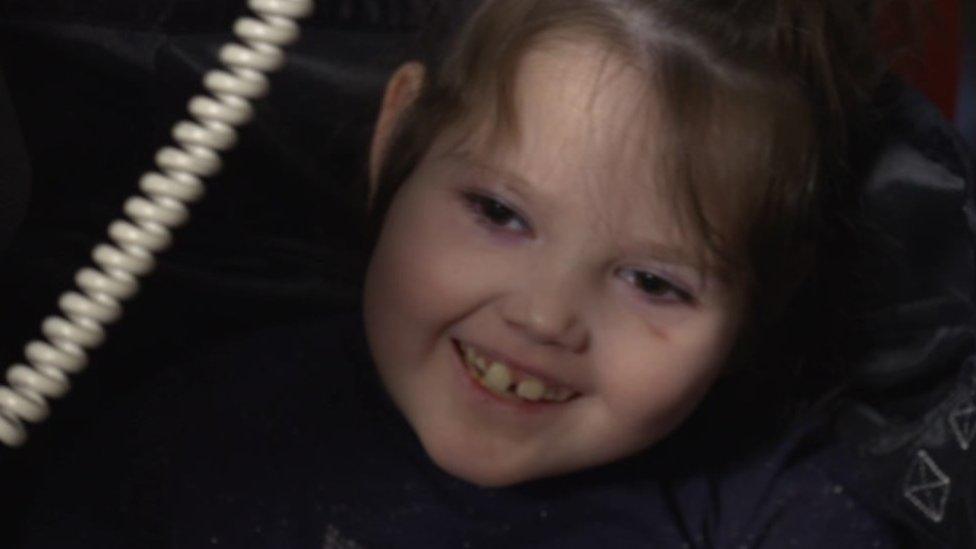
Some of the waits Darren Lewis' daughter Mared has faced have been longer than three hours
WATCh, which is run by the University Hospitals Bristol NHS Foundation Trust, is staffed 24/7 and has two daytime teams plus a night team.
Bryony Strachan, clinical chairwoman for women's and children's services at the trust, defended the increasing centralisation of services.
"Delivering high-quality intensive care in the back of a moving vehicle requires a huge amount of training, expertise and dedication, and regionalised services are best placed to provide this," she said.
But she added: "At times both the geography of the region we cover and seasonal variations in the availability of paediatric intensive care beds nationally mean that some retrievals take longer."
Dr Sian Lewis, managing director of the Welsh Health Specialised Services Committee, said: "We will continue to work with all colleagues involved in the retrieval service as we undertake a wider review into PICU services for Welsh patients in 2018."
A £1m study into whether response time affects "clinical outcomes and experiences", external for critically ill children has been ordered by Great Ormond Street Hospital in London.
Wales Live is on BBC One Wales at 22:30 GMT on Wednesday 28 February
- Published1 September 2015
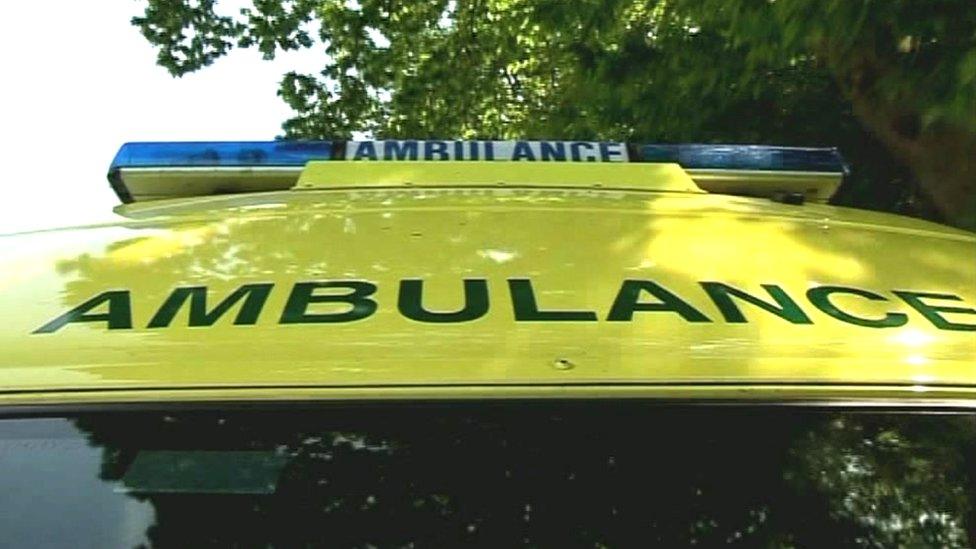
- Published11 January 2018
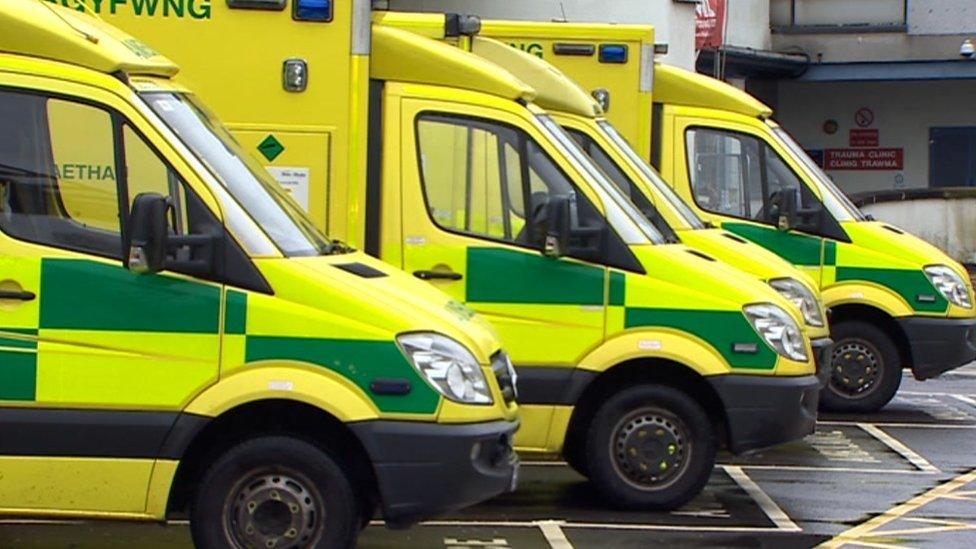
- Published17 February 2018

- Published1 February 2018
